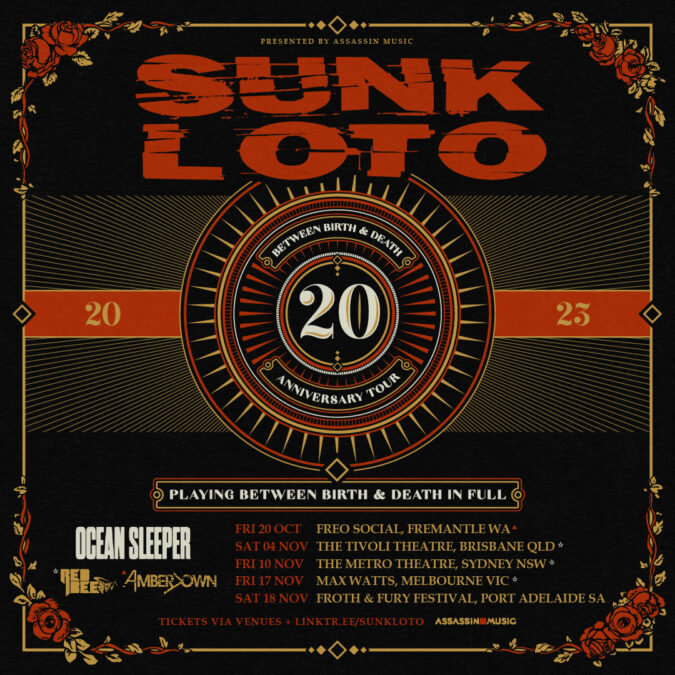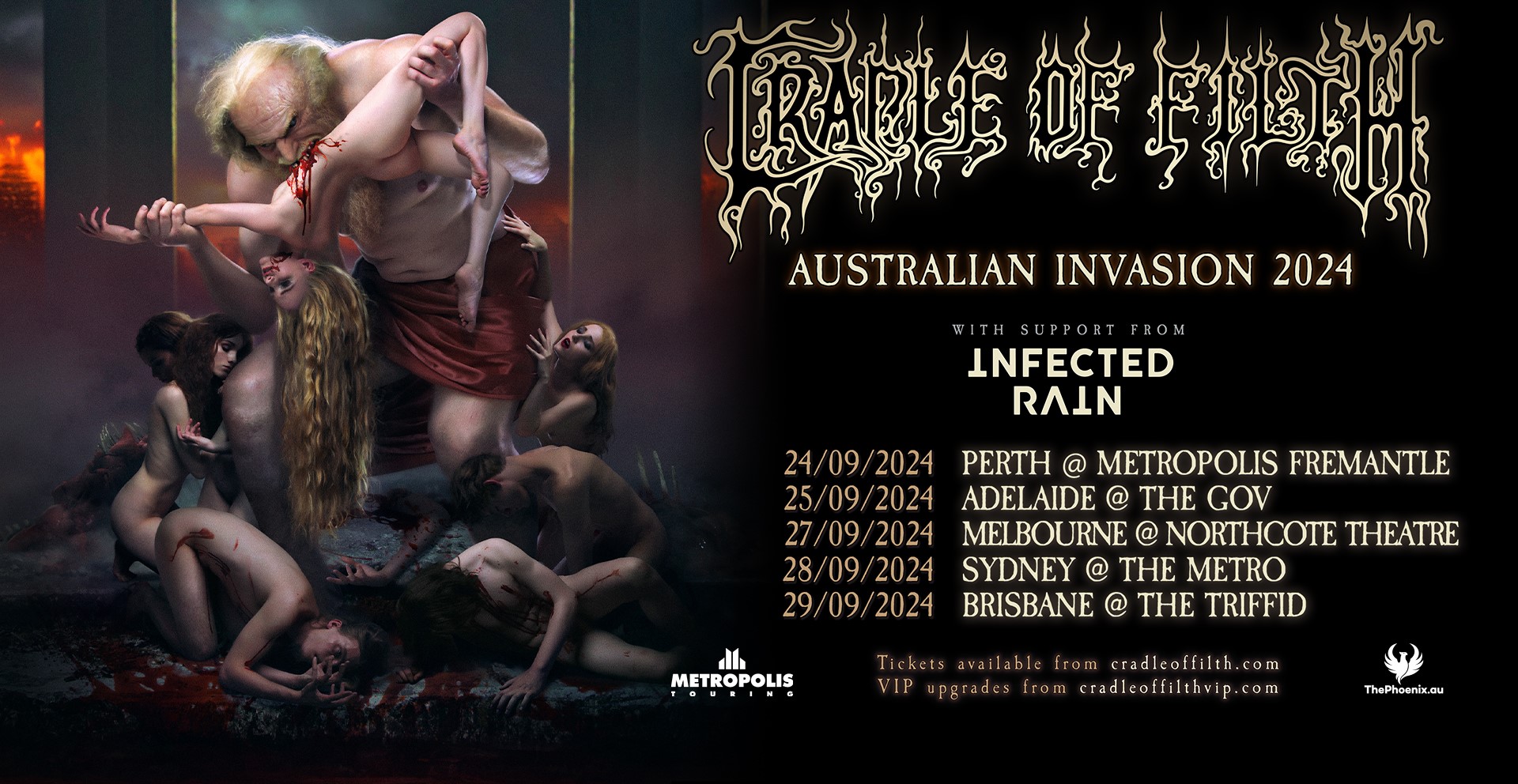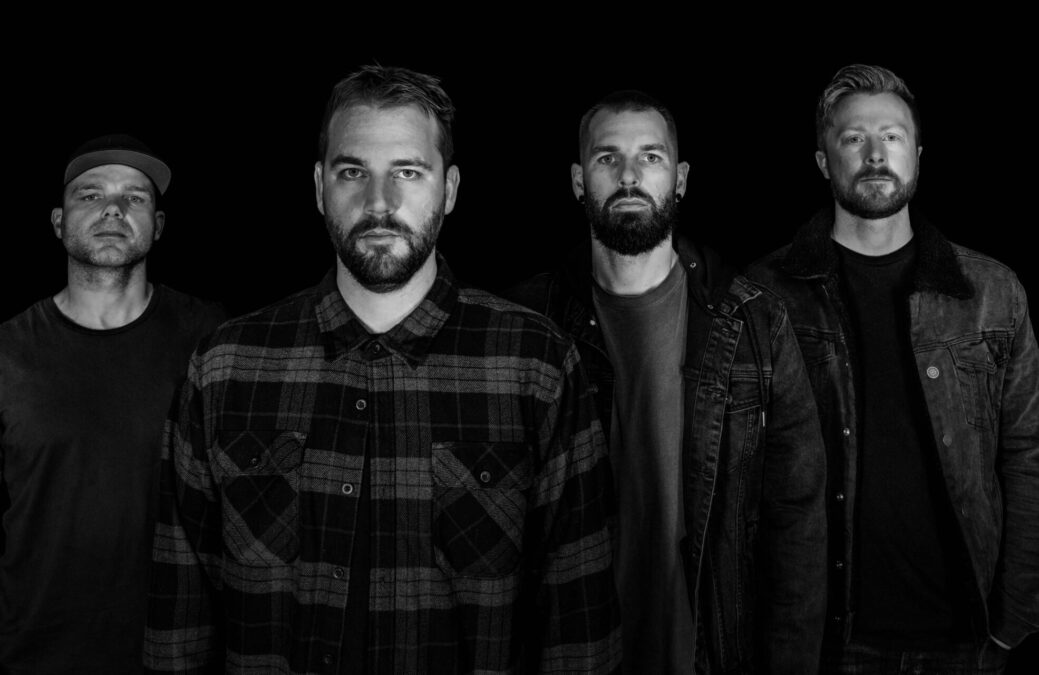Band Member: Jason Brown
Content: Album track by track of Between Birth & Death
5 Years Of Silence
This song was written very late in the piece, and it was written separately to the other tracks. Between Birth & Death was sort of written in two parts, and this one was written by me and my brother [Dane Brown]. I was going through a really bad time in my life with this record. My parents had split, and 5 Years was just the frustration of what had happened, the abandonment and the betrayal, all of the emotion coming through.
Fall Apart
Fall Apart, again, was written in those later sessions with me and my brother. And it’s sort of a continuation of what I was going through with my parents splitting, but there was probably a bit more hope on this one, whereas with 5 Years – I was purely aggressive. It was pure betrayal. This was more like the emotional purging side of that. “Why do we all fall apart? / I guess it doesn’t even matter”. I love this track. And even still live, it’s a huge one. The chorus is amazing, I reckon.
Empty And Alone
With Empty And Alone, I think I would’ve been 18 or 19 when I was writing this stuff, and it was just all towards the end of three years of writing this album, and I felt like I’d really sharpened everything. It was just flowing out like crazy. And with Empty And Alone, I actually remember me and my brother writing the drum and kick patterns in the verse for that song. And the chorus sort of speaks for itself, the lyrics are very self-descriptive in that song. It’s purely directed at someone who has done the wrong thing by you and you’re like: now you’re empty and alone. You’re alone and empty because of what you’ve done. I feel like we’ve all been through that sort of thing.
These first tracks on Between Birth & Death are definitely that seething over the hurt and trying to find the sharpest way to direct that, and the first three tracks are very intertwined. They all happened in a matter of months being written, and it was all around the same sort of heartache. But it was very, very therapeutic to get that stuff down and very therapeutic to feel like I really made things concise and pointed and exactly how I felt.
Help
Help was a full collaboration, and Help was probably the song that broke the ground for Between Birth & Death. We were really sort of toiling at the time writing, and we were getting stuck. We were on the right track, but it wasn’t where we wanted to be. We wanted to create what we felt was a masterpiece. That’s completely up to whoever wants to make that call. But this song definitely sort of set the bar for the record, and it was a full collaboration. With this song, there were riffs coming from everyone. There were parts coming from everyone, and it took a lot of time to put that song together because it’s so schizophrenic and sporadic and just always changing. That track is always evolving, it’s never repeating, it’s always moving somewhere else. This song definitely also has a lot of inspiration from a band called Refused and their album The Shape of Punk to Come. I think that definitely had some influence on this track in some parts. Lyrically, the song was inspired for me about this stalker that kept harassing me and calling me, and yeah… she was a bit nuts. That was back in the day where people would stalk and harass you by phone, there was no internet.
Starved
Starved was another one written in the later sessions. And that song, it’s pretty obvious I think for a lot of our fans, but it was about us losing a close friend of ours. He was sort of on a downward directory with drug abuse. This one is definitely a little bit personal.
Everything Everyway
I remember writing Everything Everyway in my brother’s room on an acoustic guitar, and I think it was pretty cool. It was when me and my wife still to this day got together years ago, and that was just when love is fresh and it’s just so vibrant, and that’s what that song is about. A lot of people tell me that they’ve used this song as their wedding song, I hear that a lot actually. And even acoustically, it is totally different. The way I play it occasionally live, it translates. And that to me is always a sign of a good song. I think I was told that when I was younger: if you can play a song on an acoustic and it sounds good – then you’ve got a good track. And I was thinking about that when I was writing Everything Everyway, “I better make this one really good. I better play it on acoustic, because if I don’t write it on acoustic, it might not be good!”
Burning Bridges
For Burning Bridges, it was a full collaboration again, and another hard fought win with that song. It took a lot of pen and paper and calculating and dividing and subtracting rhythms. That was a hard song to finish, and still to play that song live – I feel sorry for Ro [Stevenson], guitar wise. It’s as challenging as it gets as far as I know. But yeah, lyrically, I love that track, it still stands up. This song was obviously about the shit I was going through at that time in my life that led me towards drinking a lot and depression and mental health and all those things. And it’s a full representation of that side of the struggle. The whole album is definitely based on a real struggle.
Inside
Inside was another full-blown collaboration. The album is sort of split in two where we all collaborated and we all did stuff, and then there was stuff that was written separately. This is another quite technical track, it’s quite a heavy track, and it took a lot of work to polish it up to get it studio ready. But the lyrical content in this one is about how I was, at the time, really hating doing interviews. I’d had a couple of really bad experiences to be honest, and the lyrics to Inside are based on the interviews I was doing when I was 16, 17, 18, where I felt like most journalists were trying to bamboozle me. And I had a really terrible thought of what journalists were to us and felt like they weren’t there to help us. So, that’s what this track is about. But I feel like it doesn’t happen like that anymore.
Past Tense Experience
This track is about losing another person, it was actually the drummer from 28 Days, Scott [Murray]. We were touring with those guys a lot, we were mates with him, and that hit hard. Lyrically, that’s what this track’s about. But it’s also about, from a young guy, looking at how unfair it is to lose your friends when they’re young, and the anger is more an anger directed towards that. But on the other side, that track is a lot of fun to play live, despite the dark content.
But all of these songs have dark content. It’s a fun riff, I’ve really loved playing that on this tour actually so far. And this song was actually sort of a bit of a questionable track for us. It was a little more uptempo, sort of a punk vibe, but that was also the Refused influence playing through us, I think. And I’m really glad we put it on there. There were a few songs that were fought over, whether they made the album or not. It was quite hard fought to get them on there, but I think we made the right call.
Public Imagery
At the time that we were making this record, it was when 9/11 happened and the invasion of Iraq, and it was just crazy times. Lyrically, this song is fully about the wrongful invasion, I believe, of Iraq. And again, this was a complete collaboration on this track. And I feel like this song might’ve flowed a bit easier than the other really technical tracks on the album.
Erased
Erased is another collaborative song. A lot of work went into this one, a lot of hours of pulling apart rhythms and stuff. And lyrically, that song is just about the end of the world because that’s how I felt at the time. It’s full armageddon, it’s full: everything’s going to end, “we’re suffocating in the mess we’ve made”…which we probably are now as well anyway. And it’s like a continuation of Public Imagery, because that song’s about the war and then this is about where we’re headed. And it feels like we’re 20 years down the track and it’s all happening again. But music is the light. And the darker the world gets, the more music is the beacon to all of that stuff.
And I feel like that’s the case with all genres, but, especially for me, heavy music is very emotive, and it really binds us together.
Soul Worn Thin
This song nearly didn’t make the album, but it was fought over to get there. I think it went through a few different versions of itself. There was a collaborative version, but then this was rerecorded in a demo with me and my brother in those sessions with 5 Years and those other songs. And again, that song is about just losing someone. We lost a couple of friends to drugs and stuff like that, it seemed to be happening around us a lot. And this song is the closing of the record. It’s the closing of the whole thing, and it’s like a goodbye to the friends that we lost. It ends on a dark note, but I also feel like this song has a resolve as well. The way Soul Worn Thin ends, with that last chord, it just sort of feels like everything’s bad – but it’s also going to be fine.
You feel cleansed, and you feel like you’ve worked all that bad shit out. And even live, especially now we’re playing the whole album from start to finish, at the end, it feels like everyone else feels that. This song punctuates Between Birth & Death, it is a perfect song to finish that album and it’s the song we finished the set with last year, because it just feels like it’s the perfect way to finish things.















